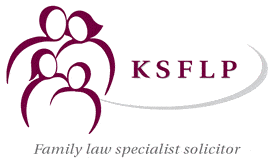


This information relates to disputes about children that involve parents and/or other family members but not a public authority.
Before applying to the Court for an order concerning a child, you will nearly always have to attend a Family Mediation Information and Assessment Meeting (MIAMS). This is to see if the dispute can be resolved without going through the court process. The court will usually refuse to deal with your application if you have not attended MIAMS unless there is a good reason such as risk from domestic abuse or if your application is an emergency.
In the majority of cases, the welfare of the child is paramount and the court will apply the welfare checklist set out in the Children Act 1989.
When a child is born to a married couple or if the parents subsequently marry, they will share Parental Responsibility for the child. If parents are not married, (unless there is a written agreement or a court order), the father will need to be registered on the birth certificate to share Parental Responsibility. Parental Responsibility means the right to make important welfare decisions for the child. Step-parents can also now apply for Parental Responsibility.
The Court can make an order specifying with whom a child is to live and setting out the arrangements for the child to spend time or otherwise have contact with another person.
The Court can make an order restricting the exercise of Parental Responsibility. The most common examples are:-
The Court can make an order requiring a person with Parental Responsibility to exercise a decision in a particular manner for example that they should permit a specified medical procedure.
The Court can grant a Special Guardianship Order to someone who is not a parent but who is looking after a child and needs to have a stronger level of Parental Responsibility than a parent who might otherwise interfere in welfare decisions. A Special Guardianship Order might be appropriate for a grandparent, foster carer or other relative who is caring for a child. The Special Guardian can overrule parents on most day-to-day welfare decisions. There are some important welfare decisions where parents cannot be overruled without a court order, for example a change of name for the child or the removal of the child from the jurisdiction by the Special Guardian for longer than three months. Parents cannot apply to the Court to overturn the Special Guardianship Order without special permission although they can apply to spend more time with the child without such permission.
Many Countries in the world do not have a law of adoption. In England and Wales, the Court can make an Adoption Order which has the effect of completely taking away the Parental Responsibility of the biological parents and giving it to the adoptive parents. Traditionally, adoptions would be completely closed and there would be no ongoing contact with the natural family. Often, there is now some contact with birth parents. This might be "letterbox contact" which means letters, cards or photographs or it could in some cases be direct face to face contact.
The above summary is only very general information. We can provide advice or representation tailored to your own particular circumstances.
“Very professional and sympathetic.” - Ms AM from Taunton
“Very professional and sympathetic.” - Ms AM from Taunton
For a consultation with a Family Law Solicitor call us on
01823 256 494
or
make an on-line enquiry
and we will give you a call back.
Kevin Shearn Family Law Practice Limited: Registered in England & Wales No. 8853617
A list of Directors is available for inspection at the Registered Office
Authorised and regulated by the Solicitors Regulation Authority No. 611869